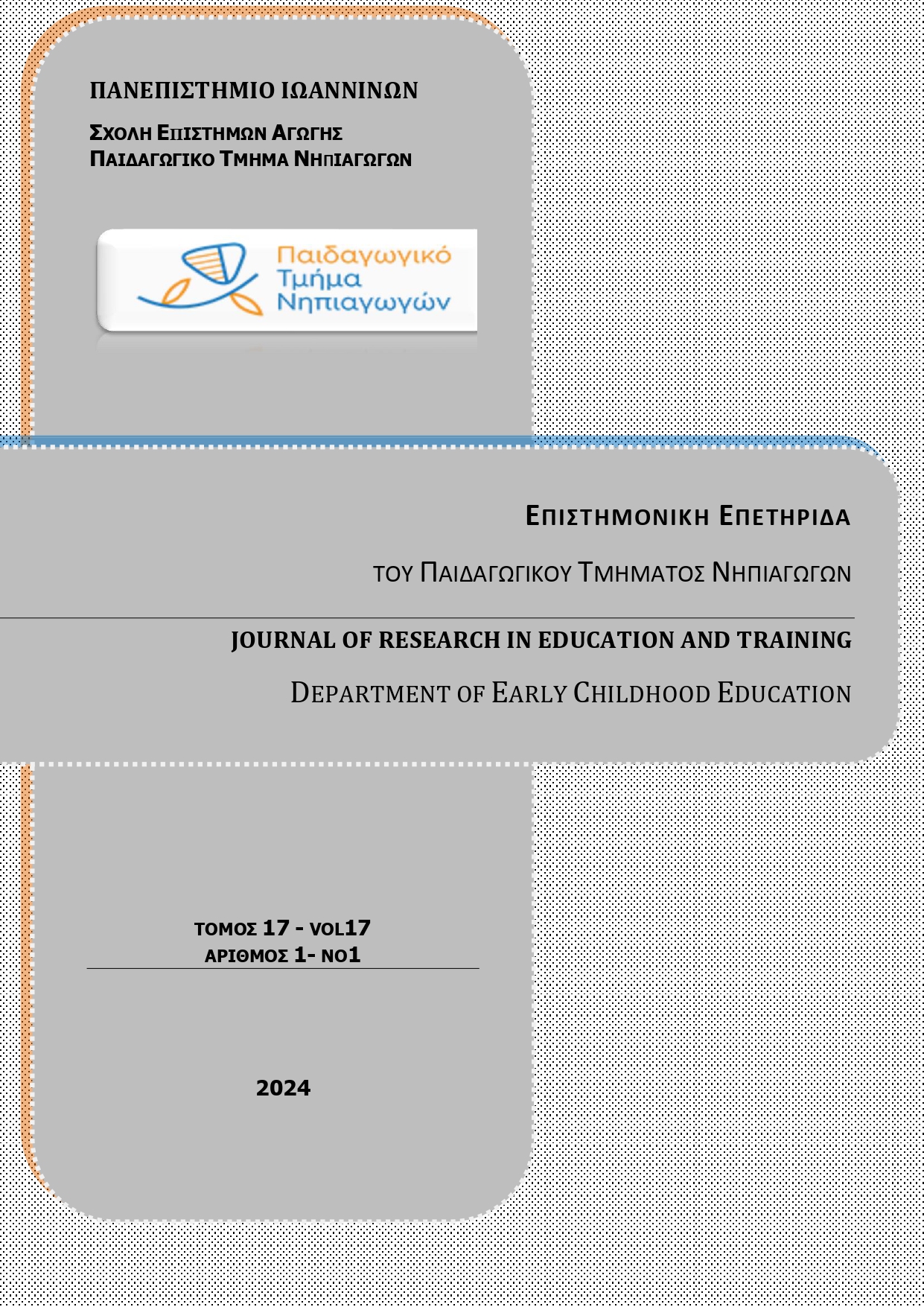The reception of newly appointed teachers in the school unit and their professional development

Περίληψη
This article examines the multifaceted trajectory of newly appointed teachers, clarifying the pivotal roles of various stakeholders in their professional integration and development. It underscores the importance of a holistic approach to inducting new teachers, highlighting the difficulties of their transition from academic training to real classroom dynamics. The principal role of school principals in shaping the institutional culture, the support and professional development functions of the Teachers' Association, and the indispensable guidance offered by mentor-counselors are discussed in-depth. Furthermore, the article emphasizes the continuous nature of teacher professional development, advocating its targeted and relevant implementation, especially for new teachers. By synthesizing these perspectives, the research provides a comprehensive blueprint for educational institutions aiming to foster an environment conducive to their teaching staff's development and long-term success.
Λεπτομέρειες άρθρου
- Πώς να δημιουργήσετε Αναφορές
-
Κατσικάς Α. (2024). The reception of newly appointed teachers in the school unit and their professional development. Επιστημονική Επετηρίδα Παιδαγωγικού Τμήματος Νηπιαγωγών Πανεπιστημίου Ιωαννίνων, 17(1), 87–101. https://doi.org/10.12681/jret.36952
- Τεύχος
- Τόμ. 17 Αρ. 1 (2024):
- Ενότητα
- Άρθρα

Αυτή η εργασία είναι αδειοδοτημένη υπό το CC Αναφορά Δημιουργού – Μη Εμπορική Χρήση – Παρόμοια Διανομή 4.0.
Οι συγγραφείς που δημοσιεύουν σε αυτό το περιοδικό συμφωνούν στους παρακάτω όρους :
1. Οι συγγραφείς διατηρούν τα δικαιώματα πνευματικής ιδιοκτησίας επί των άρθρων τους, χορηγώντας στο περιοδικό το δικαίωμα της πρώτης δημοσίευσης. Άρθρα που δημοσιεύονται στο περιοδικό «Επιστημονική Επετηρίδα του Παιδαγωγικού Τμήματος Νηπιαγωγών της Σχολής Επιστημών Αγωγής του Πανεπιστημίου Ιωαννίνων» διατίθενται με άδεια Creative Commons 4.0, σύμφωνα με την οποία μπορούν να χρησιμοποιούνται ελεύθερα, με αναφορά στο/στη συγγραφέα και στην πρώτη δημοσίευση για μη κερδοσκοπικούς σκοπούς.
2. Οι συγγραφείς μπορούν να συνάπτουν ξεχωριστές, πρόσθετες συμβάσεις και συμφωνίες για την μη αποκλειστική διανομή του δημοσιευμένου στο περιοδικό έργου (π.χ. κατάθεση σε ένα ιδρυματικό αποθετήριο ή δημοσίευση σε ένα βιβλίο), με την αναγνώριση της πρώτης δημοσίευσης σε αυτό περιοδικό.
3. Στους συγγραφείς επιτρέπεται να δημοσιεύσουν την εργασία τους online (κατά προτίμηση σε ιδρυματικά αποθετήρια ή στην ιστοσελίδα τους) πριν και κατά τη διάρκεια της διαδικασίας υποβολής, καθώς αυτό μπορεί να οδηγήσει σε παραγωγικές ανταλλαγές, όπως επίσης και παλαιότερες και ευρύτερες παραπομπές δημοσιευμένων εργασιών (The Effect of Open Access)


